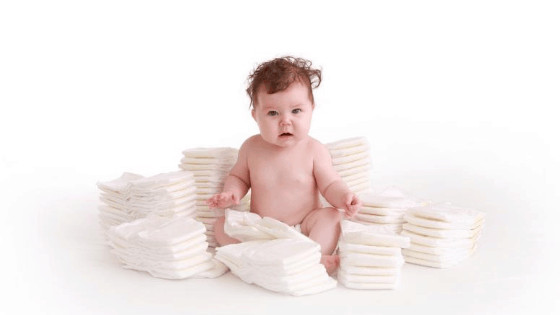
15 Jun Best Natural Disposable Diapers
Bringing a new baby in the world, your mind might be racing with all you need before that sweet bundle of joy arrives! Enter in your curiosity on natural disposable diapers. I’ve been there. I wanted to have all the baby gadgets to make being a new mom easier. But, I’ve found the more you obsess over various baby things, the more complicated things can get. Plus, everything takes up more room in your house or it’s more stuff to pack in the diaper bag.
It can just get a little crazy. With my second baby, I learned that the only things you need to focus on are the essentials. Literally. Food (preferably breastmilk, but if you need formula, I got you covered already), diapers, clothes, I mean it can be seriously that simple.
I didn’t even buy a crib for my second baby – we learned that co-sleeping is what worked best for our family.
So, I wanted to cover a topic that gets asked about in the ‘mom-world’ so often… Diapers. Which ones are the best? Do you need to go natural in diapers? Well, you’ve come to the right place.
Why should you worry about diapers?
Diapers are on your baby 24/7.
The diaper is constantly in contact with their skin and our skin is very absorbent, which means it matters what we put on it or next to it.
One of the most common practices used in making diapers is the bleaching process. The bleaching process leaves behind dioxins, which are highly toxic chemical compounds that can cause hormonal problems, immune system issues, and cause cancer.
In a study, they looked at four different diapers and studied the amount of dioxins that were left behind on the diaper. It showed that five types of dioxins were in diapers, but the concentration was very low. The actual absorption of the dioxins in the diaper through the skin showed less than 1%-3% in 24 hours. This isn’t the only problem though. Because of the diaper making process, these compounds still are produced and can get into our water, food, which is where the majority of dioxin consumption happens.
As we buy less diapers that are bleached through this process, there will be more demand for good diapers that don’t use these practices to introduce these dioxins into our environment.
Fragrances can also be used in diapers, which are known to be endocrine disruptors and hide ingredients such as phthalates (which I talk about in a previous plastic blog). Phthalates increased risk of negatively affecting the reproductive system of boys + increased the risk of asthma.
An older study showed that disposable diapers also emitted chemicals that were toxic to respiratory tracts in mice. Some of these chemicals that were emitted are xylene and ethyl benzene.
Best Natural Disposable Diapers
Cloth diapers help avoid all these problems, but I’m not talking cloth today. I want to bring to you some of the best natural diaper solutions…
- Bamboo Nature – Dermatologically Tested, Asthma + Allergy Association Approved, Forest Stewardship Council Label, Eco-Friendly, Uses ingredients from raw renewable resources, Says to work just as good as Pampers
- Andy Pandy Diapers – No Phthalates, Uses bamboo (which is eco-friendly), Hypoallergenic, No Bleaching, Biodegradable, Great Reviews!
- Nature Babycare – Unbleached, Hypoallergenic, No Fragrance, Asthma + Allergy Foundation, Made from Renewable Sources, Sustainably Harvested
You might’ve been wondering why I didn’t say Seventh Generation, which is popular brand you’d find in stores, and in the FAQ’s I didn’t like..
“Seventh Generation diapers are not biodegradable, nor can they be composted. Many of the materials used are synthetic, and do not biodegrade.”
Obviously, they aren’t perfect. And I’d still choose Seventh Generation over Huggies or Pampers. But you can’t fall for just the packaging label of being an eco-friendly diaper.
If you are wondering about Honest Diapers, they are unbleached and derived from many plant-based ingredients, but they had one ingredient, Polypropylene, that I wasn’t sure about. It was unclear if it was from a petrochemical, like petroleum or from a renewable resource. So, I also emailed them and asked them for more details….they never got back to me.
Babyganics is another popular brand you’d find in stores. What’s up with these? In their FAQ’s they said,
“Our super absorbent core blend is made with renewable, plant-based material that reduces the amount of SAP gel needed. Our diapers use totally chlorine free (TCF) untreated fluff pulp. We use a super soft, non-woven material for the top sheet, back sheet, stretchy side wings and cuff for your baby’s total comfort.”
It’s really great that they are using renewable plant based material to minimize the amount of SAP gel inside the diaper (that’s the gel that absorbs the liquid + it’s controversial if it’s safe or not safe. Right now, it’s said to be non-toxic), but the non-woven material is a pretty basic description. So, I emailed them to find out more details. I never heard back from them either.
XO


